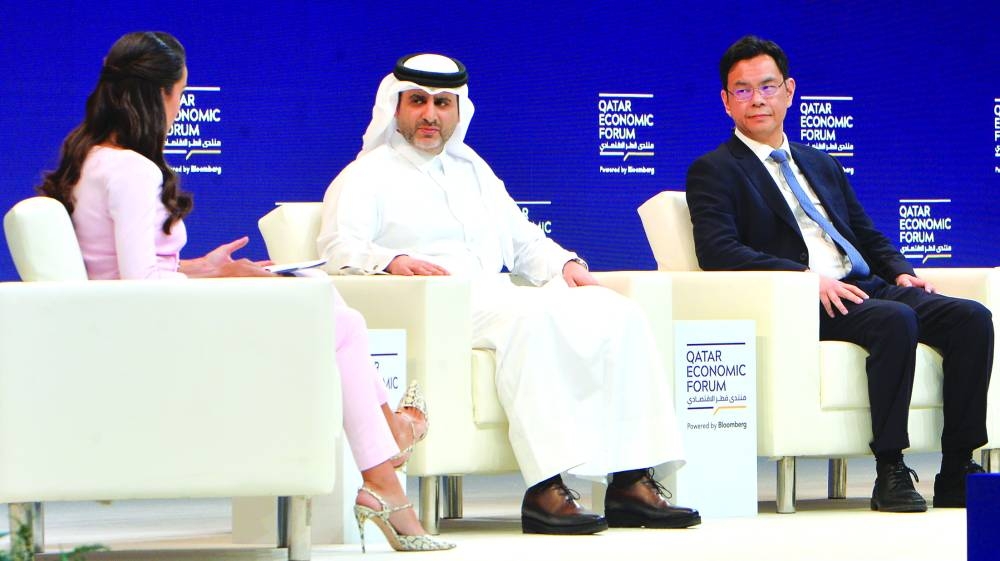Doha is now in good stage despite weakening energy prices, which is a cause of "concern"; even as the country’s sovereign wealth fund and diversification efforts will bulwark against perceived threats of the US tariff regime, according to the Qatar Central Bank (QCB).
Addressing one of the panel sessions at the fifth Qatar Economic Forum, powered by Bloomberg, QCB governor HE Sheikh Bandar bin Mohammed bin Saoud al-Thani, said the direct impact (of the US tariff) is very minimum as the country's exports to the US is less than 2%; but concern is about the indirect impact of the decline in energy prices.
"Up to now, and comparing with the oil prices at this level, we are in good stage. But if it goes below that, then there will be a concern," he said.
Oil price remains range bound amid a weakening global economy and rising supply.
According to Fitch, a global credit rating agency, the GCC (Gulf Co-operation Council) exports to the US are dominated by hydrocarbons, which are exempt from tariffs and non-hydrocarbon exports, which face a 10% tariff, or 25% for aluminium and steel, are relatively low, which limits the direct impact of the tariffs on the GCC economies.
Stressing that a prolonged weak energy market could affect fiscal budget and current account; the QCB governor said Qatar and the GCC have very well diversified their economies.
"We have an ambitious plan to diversify our economy. We already execute that plan. Also, the GCC and Qatar have built sovereign funds that can stand and support our economy, if needed," according to him.
Asked about a recent survey by University of Michigan which found the US consumers increasingly becoming worried that tariffs will lead to higher inflation; Sheikh Bandar said there have been significant improvements in the inflation in the last couple of years.
"It’s about tariff and geopolitical tension, so that all brings the inflation probability to increase again. Today, we don't know yet what will be the impact of tariffs on inflation, what is going to be the size, where it's going to hit, how long it's going to take. This is not clear for central bankers yet," he said.
"So unless we have data about the tariffs and its impact in the prices, central banks cannot move forward", he said, adding the central banks world over have the ability and the willingness to contain inflation in the coming future.
Chia Der Jiun, managing director, Monetary Authority of Singapore, said on the cyclical side, markets are pricing in slower growth, prospect of higher inflation in the US, and questions over how the fiscal situation will be resolved in the coming months and what the fiscal trajectory will be going forward.
"And then, of course, the rating agency action is a reflection of that uncertainty about the fiscal trajectory for the US, so it's important to resolve those issues," he added.
Moody's, a global credit rating agency, recently downgraded the US sovereign credit rating due to concerns about the nation's growing $36tn debt pile.
Referring to the recent high volatility in financial and stock markets because of the increasing uncertainties; Sheikh Bandar said "unless we have more stable economy, more stable environment; this volatility might continue."
About apprehensions over global recession, he said technically, "we are not yet in recession. However, the recent data shows that there is a low probability of a recession in coming future."

HE Sheikh Bandar bin Mohammed bin Saoud al-Thani, QCB governor and Chia Der Jiun, managing director, Monetary Authority of Singapore at one of the panel discussions at the fifth Qatar Economic Forum, powered by Bloomberg. PICTURE: Shaji Kayamkulam

